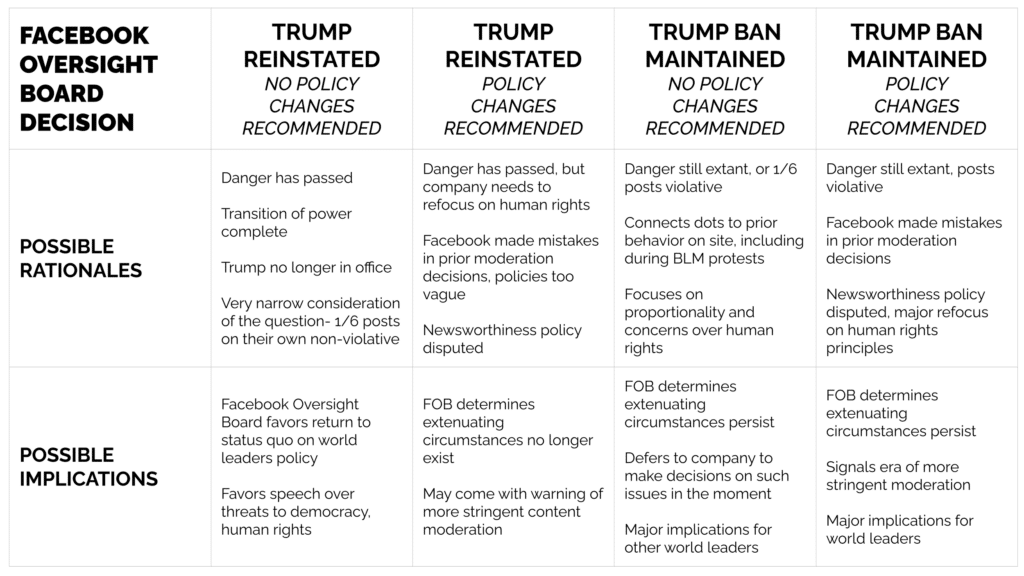Anticipating the Facebook Oversight Board decision on Donald Trump
Justin Hendrix / May 4, 2021On Wednesday, May 5th, the Facebook Oversight Board will announce its decision on whether to reinstate former US President Donald Trump.
Trump was banned after he incited the violent insurrection at the US Capitol on January 6th. That day, he posted on Facebook a statement saying that his supporters should “remember this day forever" and that "these are the things and events that happen when a sacred landslide election victory is so unceremoniously & viciously stripped away from great patriots who have been badly & unfairly treated for so long."
Facebook CEO Mark Zuckerberg at the time noted that the restrictions on Trump's account related to the heightened risk of violence or disruption during the transition period. The decision will have implications for other world leaders and potentially for the future of content moderation on Facebook and on social media more generally. If reinstated, Trump will regain a key platform to communicate and potentially launch a bid for reelection in 2024.

The Oversight Board, a relatively new, quasi-independent Facebook construct that has already ruled on a number of cases, will itself face extreme scrutiny in the wake of its decision.
No matter what, a number of key questions will likely remain, as Dipyan Ghosh and I wrote in February. A key one will be what evidence is provided to substantiate the Oversight Board's decision. Despite providing 9,000 comments ahead of the decision, the “public” has no access to the necessary details to gauge whether the Oversight Board made the right decision, regardless of what it decides. While Facebook has recently made more data available to researchers through special programs, there is simply not enough known about how a leader like Donald Trump has used the platform and how the network has changed as a result of his presence. For the public to comment, let alone understand, it needs the facts, or else the value of its input is necessarily limited.
“Given the implications of these decisions, we as a society have a right to transparency about how they made those decisions, the standards they adopted, the evidence they found persuasive, etc.,” wrote David Kaye, a law professor and former UN Special Rapporteur on freedom of expression.
No matter the outcome in tomorrow's decision, how to enable such transparency will remain a crucial issue.
Authors
